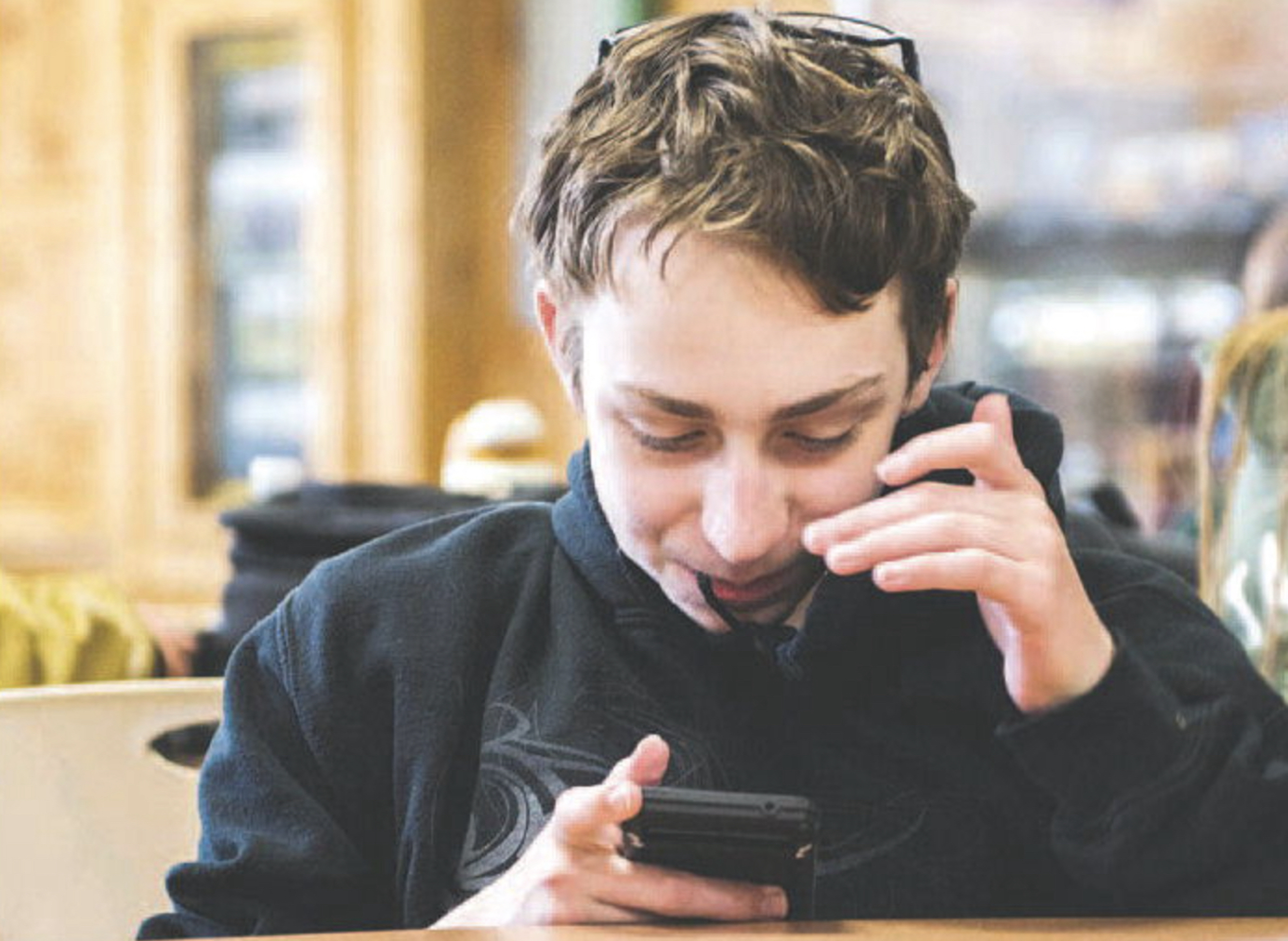Johnson County school district will test drive new cellphone policy

McRae Gardner uses his cellphone during his lunch break on Tuesday at Buffalo High School. The district will pilot a new cellphone policy beginning April 7. Photo by Tanishka Poal, Buffalo Bulletin.
BUFFALO — Johnson County School District No. 1 will test drive an updated smart device policy starting the week after spring break.
As outlined in the policy recommendation adopted March 10 by school board trustees, the district will temporarily adopt a policy that would prohibit smart device use, such as cellphones and smart watches, for all K-12th grade students, with high school students permitted to have smart devices during lunch.
The term “smart device” is used because beyond cellphones, student learning can also be affected by other personal devices such as smart watches, Superintendent Charles Auzqui said in an interview prior to the policy update’s release.
Ever since a flurry of schools across the country adopted more restrictive cellphone policies ahead of the 2024-25 school year, Johnson County has been developing its own districtwide policy update.
A growing body of research has shown the negative impacts of cellphones on students and their learning, and districts have instituted more restrictive policies in response. But rather than taking a reactionary approach, Auzqui said, the board elected to take a measured approach to updating cellphone policies by first creating a committee and gathering feedback from staff, students and parents.
The new policy is meant to provide consistency, not completely change what schools are already doing.
“This is an ongoing journey, not the creation of something entirely new,” according to the recommendation.
Board Vice Chairwoman Lynette Fox said at the meeting that as a member of the committee that created the policy recommendation, a lot of work went into it.
“I just want the public to know that we looked at all aspects and there were hard conversations and there were good, productive conversations coming to this committee,” Fox said.
Each building will determine the collection or management of smart devices and consequences for violating the policy for their school.
At the end of this school year, based on the recommendation, the board will collect feedback to help trustees develop a districtwide smart device policy over the summer to be implemented in the fall. While each school building already has a cellphone policy for students, enforcement varies. The process of creating a districtwide policy started at the direction of the board with the hopes of creating more consistency districtwide.
The existing student cellphone policies across the district aren’t dissimilar to the new policy.
Based on their student handbooks, Meadowlark Elementary School and Cloud Peak Elementary School prohibit student cellphone use during the school day. Kaycee School and New West High School only allow cellphone use before school, during lunch and after school. Buffalo High School and Clear Creek Middle School students can use their phones on campus before school, during passing periods, at lunch and after school.
The policy also outlines expectations for staff, administrators and the school board in modeling appropriate cellphone behavior and supporting the policy changes.
In making its recommendation, the cellphone committee noted that a lot of the success of the policy change will rely on the work of district leadership, who will be “critical” in ensuring the policy is consistently and effectively implemented across the district. Additionally, district leaders are expected to set “clear expectations” and support staff in enforcement.
Adults, including school board trustees and district staff, are also expected to lead by example with appropriate cellphone use at district functions and during instructional time.
“As professionals and role models, all district employees are expected to model appropriate and responsible use of personal smart technology during the school day,” according to the policy. “Staff should prioritize engagement with students, instructional integrity, and professional responsibilities over personal device usage.”
This story was published on March 13, 2025.








